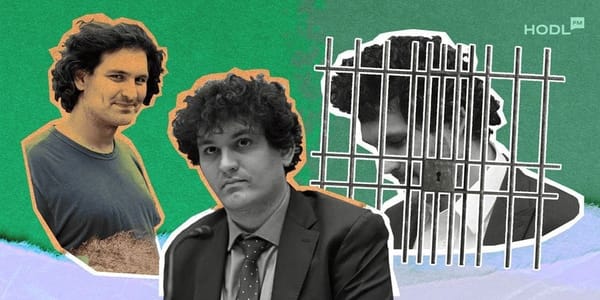The U.S. Department of Justice announced the sentencing of Keonne Rodriguez and William Lonergan Hill, co-founders of the cryptocurrency mixing platform Samourai Wallet, for conspiring to transmit criminal proceeds through unlicensed money transmitting operations that processed more than $237 million in illegal transactions. The sentences were delivered by U.S. District Judge Denise L. Cote in the Southern District of New York.
Rodriguez, 37, the company’s Chief Executive Officer, received a five-year prison term on November 6, 2025, while Hill, 67, the Chief Technology Officer, was sentenced to four years in prison on November 19, 2025. Both were found guilty of operating a platform that knowingly obscured criminal payments flowing through the Bitcoin network.
“The sentences the defendants received send a clear message that laundering known criminal proceeds—regardless of the technology used or whether the proceeds are in the form of fiat or cryptocurrency—will face serious consequences,” said Nicolas Roos, Attorney for the United States, acting under authority conferred by 28 U.S.C. § 515.
Roos added:
“These sentences reflect the harmful impact that money laundering services have on victims by making it virtually impossible for victims to recover their stolen funds. Our office will continue to work tirelessly to hold accountable those who profit by helping criminals hide their criminal proceeds.”
Samourai Wallet’s operations and tools for concealing funds
According to court filings, Rodriguez and Hill began developing Samourai Wallet in 2015, designing it to operate as a service for transmitting and concealing illicit funds. The platform offered two main privacy tools: “Whirlpool” and “Ricochet.”
Whirlpool, launched in 2019, acted as a Bitcoin mixing service that combined multiple users’ transactions, obscuring the source and destination of funds. Ricochet, introduced in 2017, added extra intermediary steps, or “hops”, between transactions to make tracing funds significantly more difficult.
From these tools, more than 80,000 Bitcoin, worth over $2 billion, moved through Samourai, generating an estimated $6 million in fees. Prosecutors said much of that volume was tied to drug trafficking, darknet marketplaces, cybercrime, fraud, and other illegal operations.
Authorities further revealed that Hill marketed Samourai on darknet forums such as Dread, advising users seeking to “clean dirty BTC.” In one exchange, Hill wrote that “Samourai Whirlpool is a much better option” than a competitor service for making Bitcoin “untraceable.” Meanwhile, Rodriguez used Twitter in 2020 to encourage hackers behind a social media breach to send stolen funds through Samourai’s Whirlpool service. In private messages, he referred to mixing as “money laundering for bitcoin.”
Hill’s sentencing and autism defense
Hill pleaded guilty in July to conspiracy to operate an unlicensed money transmitting business, following a plea deal that dropped a broader money laundering conspiracy charge. During sentencing, Judge Cote noted that she imposed a reduced sentence after considering Hill’s age and recent autism spectrum disorder diagnosis.
“I accept that it will be a more difficult time for the defendant to be in prison than many other people,” Judge Cote said. “I would be imposing a sentence of 60 months otherwise.”
Hill’s defense attorney, Roger Burlingame of Dechert LLP, argued that Hill’s autism caused “magical thinking” and led him to believe Samourai’s non-custodial structure made it exempt from registration requirements. Burlingame told the court that Hill’s “black-and-white” thinking and idealism about blockchain freedoms contributed to his poor judgment.
While acknowledging the challenges Hill faces, Judge Cote rejected the notion that his condition removed moral culpability. “People should be deterred,” she stated. Hill addressed the court, saying,
“I told myself that my work was about [freedom] but in truth, I was rationalizing my own hubris. I have learned a painful but essential lesson from this experience and I take full responsibility for my actions.”
Penalties, forfeitures, and broader implications
Along with their prison terms, both Rodriguez and Hill were sentenced to three years of supervised release and ordered to pay $250,000 in fines. They have collectively paid over $6.3 million in forfeiture, representing Samourai’s fee earnings, as part of a broader forfeiture order tied to $237.8 million in total criminal proceeds.
Hill must self-surrender by January 2, 2026, to begin serving his sentence.
The investigation was led by the Internal Revenue Service–Criminal Investigation Division (IRS-CI) and the Federal Bureau of Investigation (FBI), with assistance from the Justice Department’s Office of International Affairs, Europol, and law enforcement agencies in Portugal and Iceland.
Prosecutors emphasized that the case highlights how technology-driven platforms used for anonymity and privacy in cryptocurrency cannot serve as shields for illicit finance. As the verdicts signal, operating or promoting tools that knowingly enable criminal mixing of funds carries severe consequences, even in open-source or privacy-focused contexts.

Disclaimer: All materials on this site are for informational purposes only. None of the material should be interpreted as investment advice. Please note that despite the nature of much of the material created and hosted on this website, HODL FM is not a financial reference resource, and the opinions of authors and other contributors are their own and should not be taken as financial advice. If you require advice. HODL FM strongly recommends contacting a qualified industry professional.





